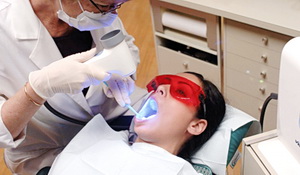Source: worldental.org
Author: staff
Every year, over 34,000 Americans develop oral cancer. Many die, and many others must undergo surgery that leaves them permanently disfigured.
In the March 2010 issue of Esquire magazine, film critic Roger Ebert shared his story about his battle with the oral cancer disease. After multiple surgeries, he lost his lower jaw, along with his ability to speak and eat solid food.
Ebert brings publicity to a disease that hasn’t received much. Oral cancer can be a serious diagnosis, mainly because it usually goes undetected until it has reached an advanced stage and has spread throughout the body.
People in their 60s who use tobacco and/or alcohol were once thought to be most at risk of getting oral cancer, but new evidence suggests a more disturbing cause. Oral cancer is now linked to the human papillomavirus (HPV), the same virus that causes cervical cancer. This means that oral cancer can be spread via oral sex, which puts sexually active younger adults in a higher-risk category.
Dentists are usually the first to diagnose oral cancer, but 75 percent do not check their patients for signs of the disease. What’s more, the early signs of oral cancer are invisible to the naked eye, so even those who look for it may not spot it.
Luckily, there is a technology to detect the earliest signs of oral cancer. It’s called the VELscope, and it’s being used in approximately 500 dental practices throughout the United States.
Dr. Michael Koczarski of Woodinville, Wash., was one of the first to incorporate VELscope technology at his practice, Koczarski Aesthetic & Laser Dentistry.
“Having seen the effects of oral cancer firsthand, I realized the value of VELscope screenings,” says Dr. Koczarski. “They’re quick and painless, and can save lives.”

The VELscope uses a bright blue light to illuminate the mouth, revealing tiny abnormalities the eye cannot see. A VELscope screening involves shining this light on every part of the mouth, tongue and jaw, and noting lesions that may be signs of oral cancer.
Dr. Koczarski was involved in clinical trials of the VELscope and has used it to screen thousands of patients. “With the VELscope, we can catch oral cancer at a stage where it can be treated successfully,” he says. “I recommend that every adult get a VELscope oral cancer screening once a year.”
In honor of Oral Cancer Awareness Month in April, Dr. Koczarski is offering a free VELscope screening with every exam performed in April.

Leave A Comment
You must be logged in to post a comment.